If you had to choose one word that symbolizes “women in science,” what would it be? CGIAR Excellence in Breeding asked this question to an array of women working across the crop breeding domain. Their answers show us a scientific field full of hope and accomplishment, but still struggling with challenges. For this year’s International Day of Women and Girls in Science, we feature the words and experiences of 16 prominent women in breeding science:
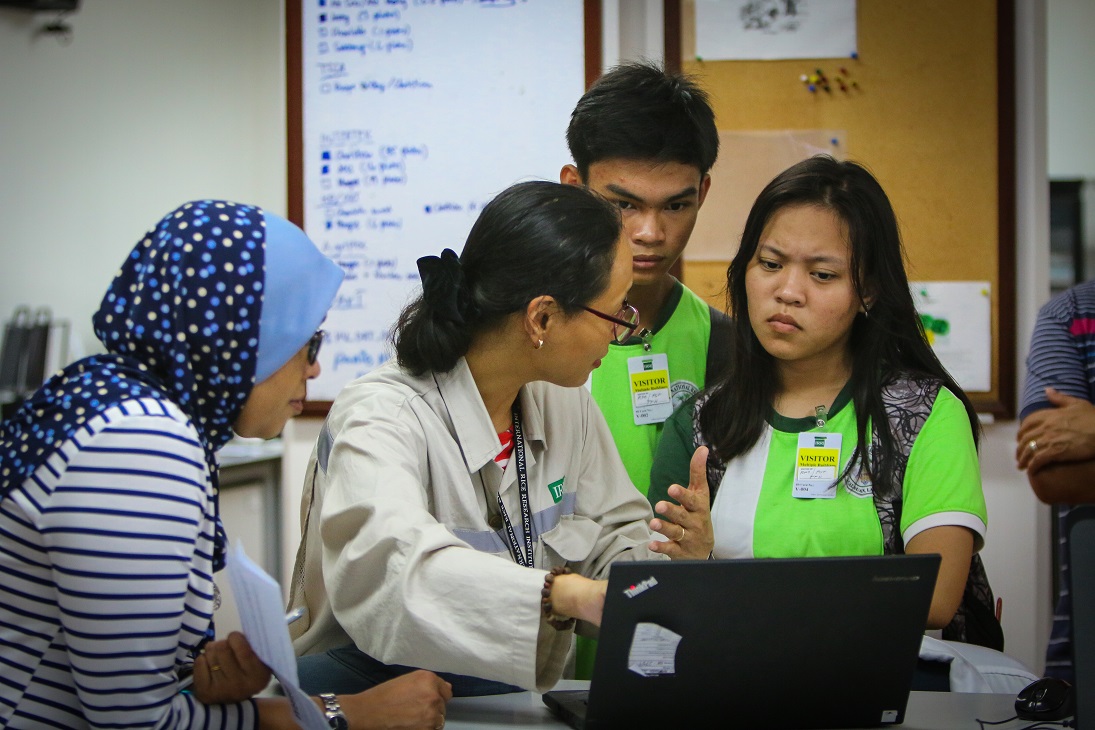
STRONG -- by Sharifah Alwee, Senior Director, CGIAR Breeding Research Services
Where I came from (oil palm breeding) and even in CGIAR, women are underrepresented when it comes to breeding science. Perhaps the working conditions for breeders, which usually require a person to work outdoors for long periods of time, only attract the strongest of women. Sometimes the work also carries the scientists/breeders to faraway places requiring a woman to be away from her family for long periods of time. Strong support from family and friends is absolutely crucial for them to continue following their chosen path.
*****
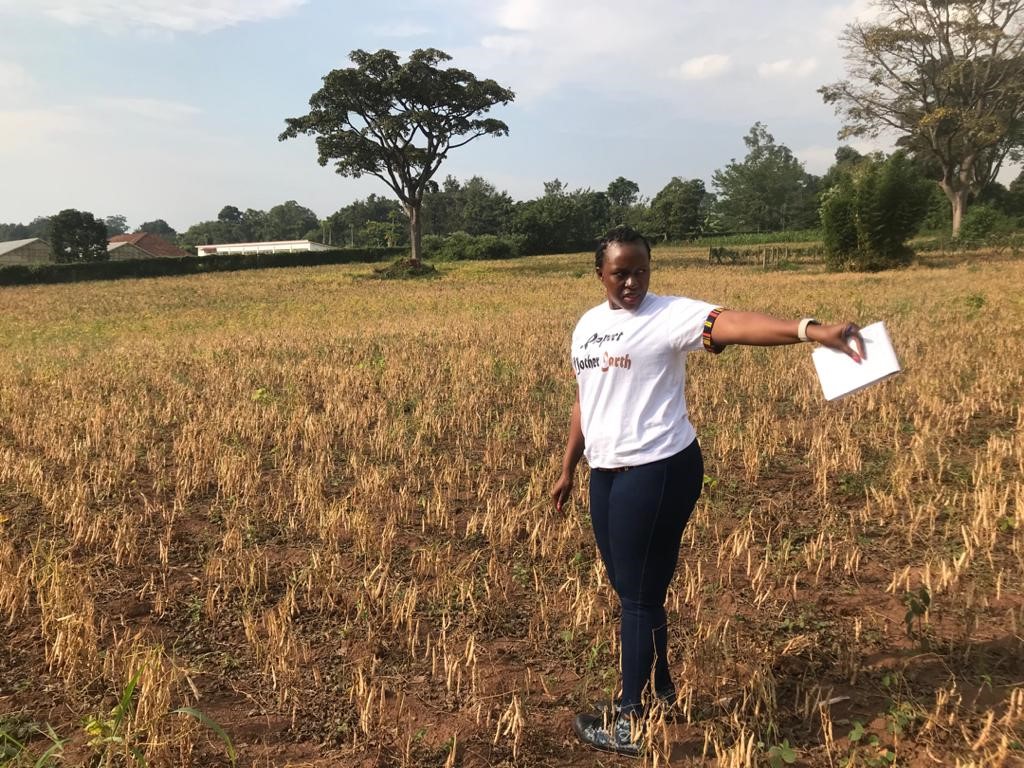
PASSION -- Clare Mugisha Mukankusi, Co-lead, CGIAR Accelerated Breeding Initiative; Plant breeder, Alliance of Bioversity International and CIAT
My work has been mainly successful because of my passion for agricultural research and the great support of many mentors. I recently assumed the role of the Global Breeding Lead for common bean at the Alliance of Bioversity and CIAT. My passion will help me meet the challenges of supporting global bean breeding program operations, including trait discovery, breeding for biotic (pest and disease) and abiotic (drought and low soil fertility) stress resistance, consumer traits (short cooking time, color, seed size etc.) and bio fortification (high iron and zinc grain content). These are priorities in Africa and Latin America region. I’m honored by the responsibilities in overseeing bean breeding vision, strategy and operations. And our collective passion is sure to deliver genetic gains in farmers’ fields!
*****
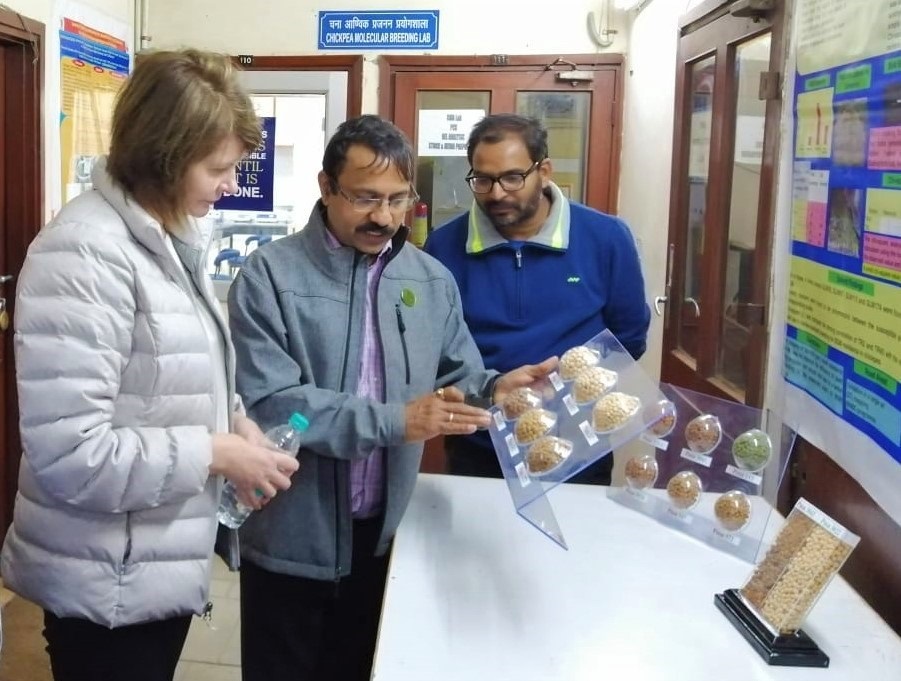
EXCITEMENT -- Liz Jones, former Adoption and Outreach Lead, EiB
I was 15 when I had my first lesson in Mendelian genetics. That lesson was like having a bucket of iced water poured over my head – I could hardly breathe with excitement. I knew this was what I wanted to do for the rest of my life. Of course, it took me many years to hone my craft and I battled some self-doubt. I also struggled to make my voice heard, as plant breeding was – and is – very male dominated. However, I had many wonderful mentors, including from my PhD experience at ICRISAT. This drew me back to working with CGIAR after many years in industry. I am so excited now to see the incredible new wave of female scientists bringing new technologies and techniques to plant breeding. The excitement and confidence of this new generation is bringing such great positive energy to CGIAR and NARS. Of course, there will always be obstacles, doubters and belittlers. But my advice is to stay focused, find the courage to keep exploring, find people who you can trust, and when you are feeling weary, don’t forget that moment when you fell in love with science. Draw on your excitement, and you can make a difference.
*****
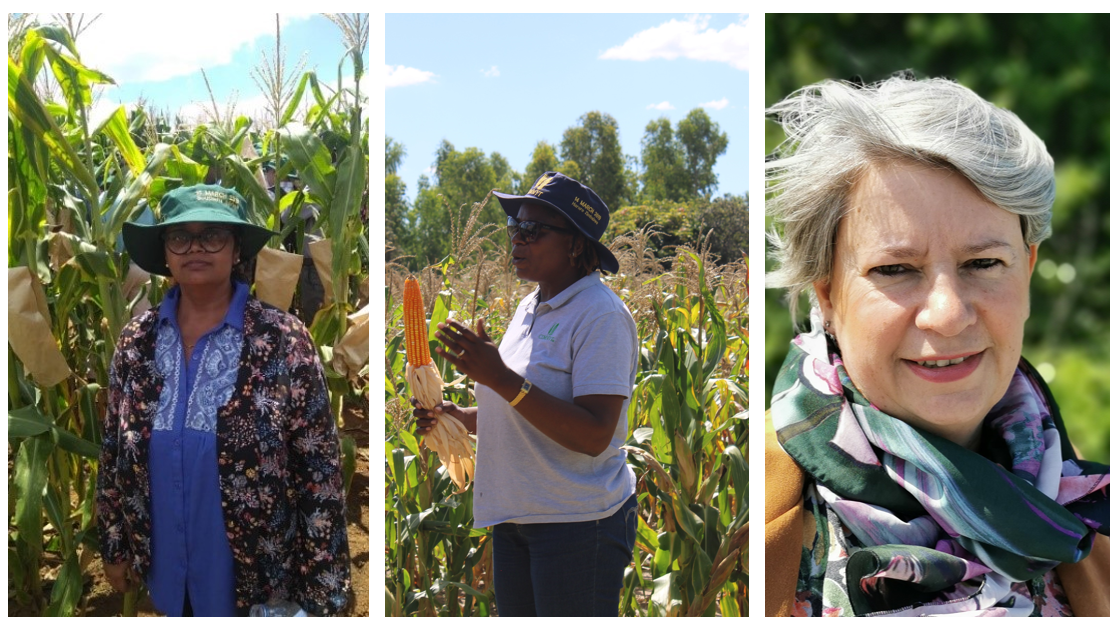
PASSION -- Aparna Das, Technical Program Manager for the Global Maize Program, International Maize and Wheat Improvement Center (CIMMYT)
I have always been very passionate about the work I do. Women in science – especially field breeding – face many challenges, and it is only ‘the passion’ to do something in the field of agriculture (dominated by men) which drives me to do my best. I remember the time(s) when I would visit remote parts of India with all-male colleagues team for field trips, and in spite of the hardships would still feel so satisfied at the end of day after having contributed equally to field selections. It is the passion for contributing to farming communities which continues to drive me in this field!
*****
ASSIDUOUS -- Thokozile Ndhlela, Scientist/Maize Breeder, International Maize and Wheat Improvement Center (CIMMYT)
Women in science are assiduous, as they are hard-working individuals, who are diligent and reliable in their work. They demonstrate enthusiasm towards what they do, without slackening. They can be counted on when it comes to delivering project workplans in a timely manner. An example of this kind of assiduousness is Aparna Das, from the Global Maize Program. Aparna will not stop at anything until the work is done.
*****
NURTURING -- Petra van Roggen, Global Business Development Manager, AgriTech at Intertek
There are many comparisons between raising children and plant breeding. A mother tenderly nurtures her children; encourages, inspires and embraces; protects and teaches her babies as they become toddlers and teenagers; helping them become prosperous adults. A plant breeder creates better varieties, carefully selecting the best seed; year upon year; improving, protecting and challenging it, to become the best new product on the market. Molecular markers and Intertek’s SNP Genotyping reports are tools for a plant breeder to carefully shape and mature breeding material. These are like school reports providing feedback and status updates to parents. There are plenty of excellent male plant breeders, scientists and good fathers(!), but women in plant breeding and science brings a special type of nurturing: Motherly Care and Female Intuition, to create successful varieties for the market – to feed families, end hunger, improve farmers income, and to make this world ever better.
*****
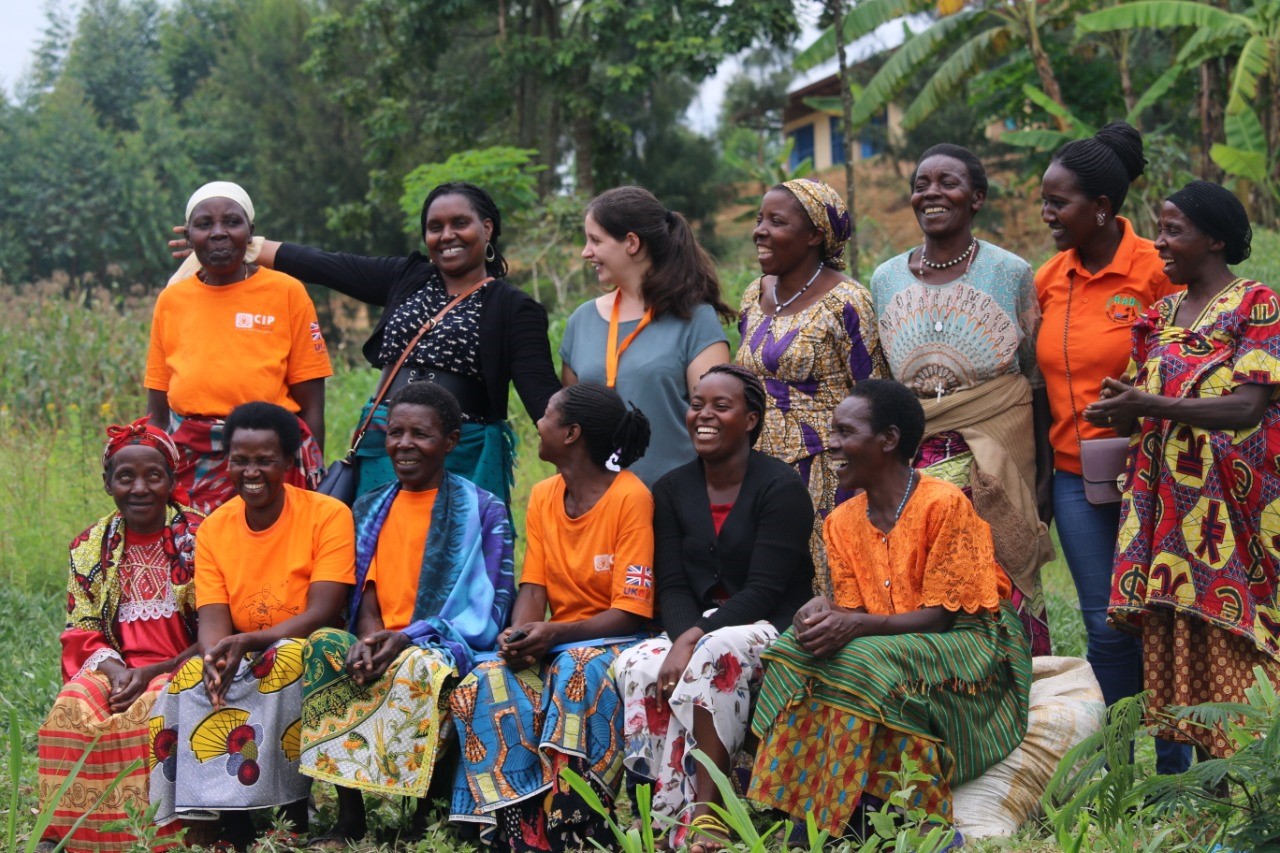
DETERMINED -- Dorcus Gemenet, ACCELERATE Work Package Lead, CGIAR Accelerated Breeding Initiative; EiB
I am determined to contribute towards feeding the world and alleviating suffering from hunger and malnutrition. I am determined to go the extra mile to understand the needs of our ‘bosses’-the small scale-farmers and end-users, in order to serve them better. Whether by hearing it from the ‘horse’s mouth’, or engaging with different partners and stakeholders, I am determined to take up these needs, personalize them and help seek solutions – albeit behind a computer. Above all, I am also very determined to raise a family, and as every woman in breeding science, I am motivated by the foundational pain of seeing a suffering/starving child. I am therefore DETERMINED to care and to help make a difference by simulating and communicating all possible scenarios that would enhance increase of genetic gains in farmers’ fields. Furthermore, I am determined to be a good role-model and mentor to upcoming women in breeding science.
*****
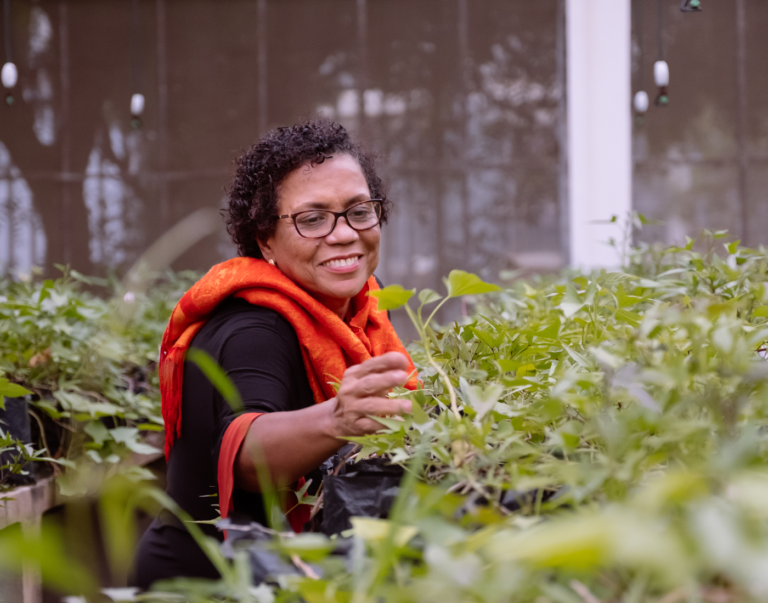
INNOVATIVE -- Maria Andrade, sweetpotato breeder and World Food Prize winner, International Potato Center (CIP), Flagship leader for CGIAR Research Program on Roots, Tubers and Bananas (RTB)
Innovators create new ways of doing things that suit and represent our work. In our case, it links up well with Excellence in Breeding, which is about modernization, genomic selection, new breeding tools, methods, digitization and gain in the farmers’ fields. It is also related to sustaining breeding related outcomes with direct participation of women. Today, any technology or idea must be both gender balanced and innovative to sustain success - especially in an agriculture sector dominated by women. This breeding program modernization must also be team-based, and data driven, generating confidence, motivation and innovation.
*****
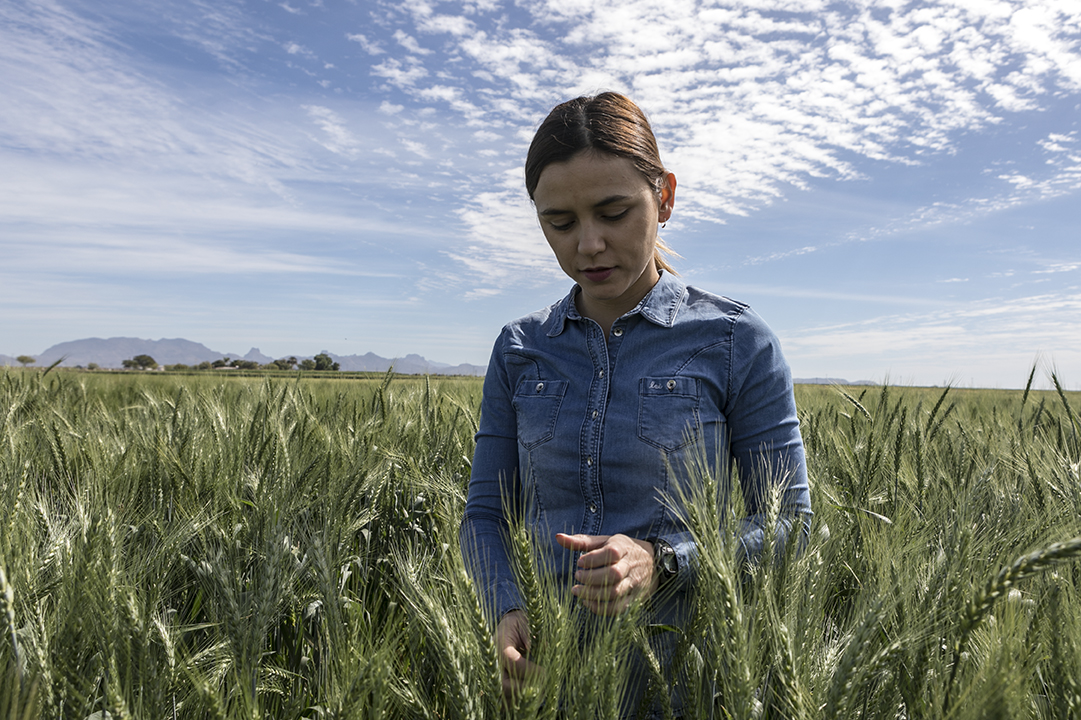
POSSIBILITIES -- Carolina Rivera Amado, Wheat Physiologist, International Maize and Wheat Improvement Center (CIMMYT)
Systemic strategies that create possibilities for the participation of women and girls in science careers, especially in crop breeding, play a pivotal role in achieving food security. When I was younger, I used to believe that a career in agricultural science was an uphill challenge for me as a woman. But being introduced to crop breeding was critical to embracing my abilities and love for science - of course with the right mentoring. I was lucky in that sense. But assuming we’ll reach gender equality through mentoring and supporting women and girls just from our own trenches is not enough. We should speak up actively and cascade this idea into wider environments. There is a new world of possibilities when gender obstacles can be overcome.
*****
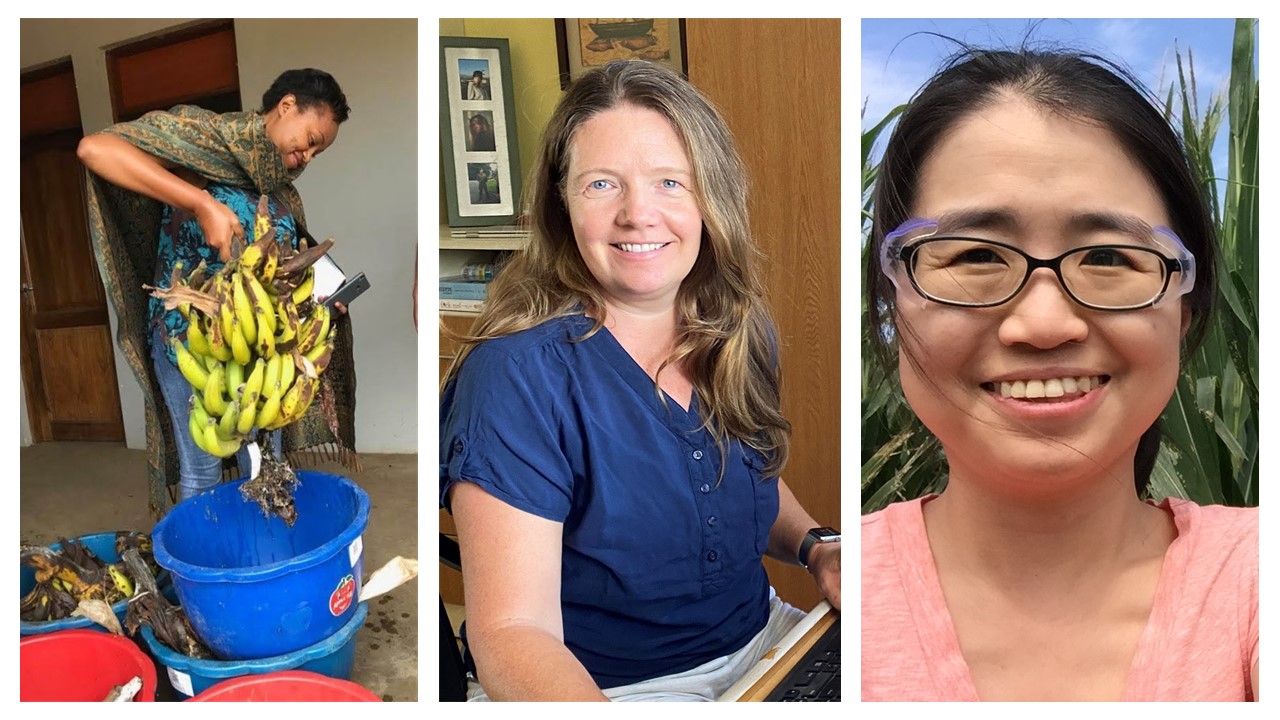
BALANCE -- Brigitte Uwimana, Banana Molecular Breeder, International Institute of Tropical Agriculture (IITA)
Women in science have braved the male-dominated world. Many of us have to balance work with all our usual responsibilities of pregnancy, breastfeeding, keeping a perfect home, raising children. We also seem to carry unfair pressure of looking young and beautiful into laboratories, offices, fields, airports, hotels and conferences. Every moment of our lives is about balancing responsibilities and expectations. And doing it with a smile – at least in public. :)
*****
DIVERSITY -- Hannele Lindqvist-Kreuze, Head, Genetics Genomics and Crop Improvement, International Potato Center (CIP)
Diversity in the workforce brings forward fresh points of view. A diverse team can make better decisions because each team member can contribute their experiences. I’m happy that in my workplace we have women that represent different cultural backgrounds. I have gained so much from the interactions with them, particularly our gender specialists on their work to understand the preferences of women for potato and sweetpotato varieties. Capturing the diversity of opinions is so important for us to be able to understand what kind of varieties we need to develop. It seems that diversity is a key to many aspects of my work. As for breeding, we need to generate and maintain the genetic diversity in our breeding populations to be able to develop varieties that respond to the needs of our diverse target groups.
*****
PROMISE -- Young Wha Lee, CGIAR Breeding Resources Initiative Lead; Module / Breeding informatics lead, EiB
The promise of science and technology to improve and save lives is clear, especially in these COVID times. Women are historically under-represented at all levels in STEM and in breeding research, despite the promise of their talent. I can point to many key points in my own life where I might have dropped out of the academic and career development pipeline but for the encouragement and validation of family, teachers, mentors, friends, and colleagues. I believe in progress, I have seen it play out in my own life writ large (as a South Korean national) and small (in the freedom of choices I have that my mother and grandmothers didn’t). As an R&D professional, I have promised myself that lifting up women and other under-represented groups on the path to career and individual fulfillment is, quite simply, a part of the job. We can’t afford to do otherwise!
*****
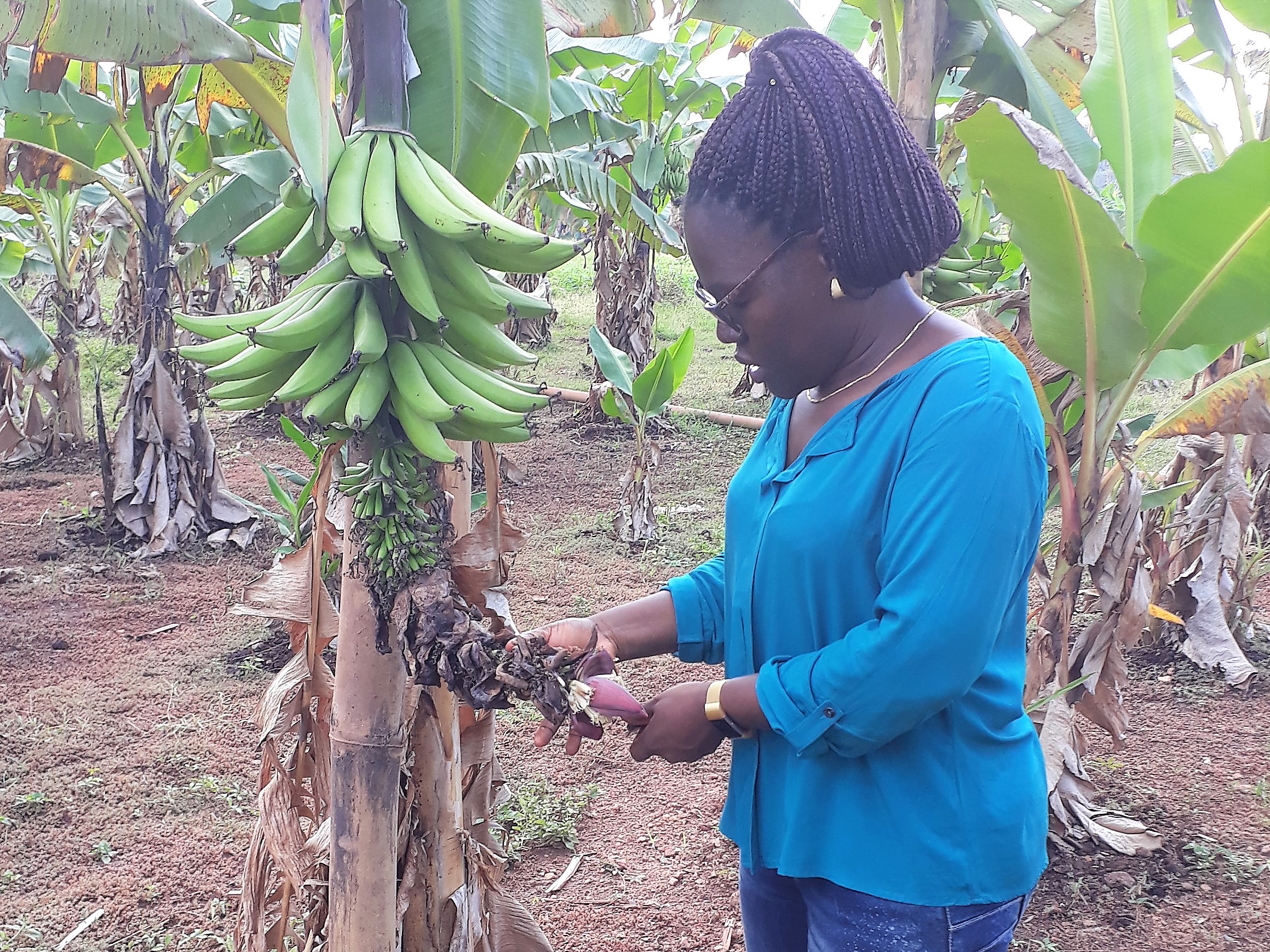
DETERMINATION -- Amah Delphine, Breeder & tissue culture expert - Plantain & Banana Improvement Program, International Institute of Tropical Agriculture (IITA)
As a woman in science/plant breeding, I have a strong determination to contribute to scientific innovations that address important challenges to food security. Being part of a minority group in science, I believe everyone has potential and everyone has the key to unlock that potential. With my strong determination, I try to overcome all prejudices (including mine) and focus on the unique value of what I bring to the table, no matter how different. I am passionate about my work on plantain/banana improvement @IITA and I enjoy being part of the larger scientific community working together to impact on livelihoods worldwide. Whether you are pursuing your own research ideas/observations, mentoring talented young people or making major policy decisions; know yourself and be intentional in tapping on your own unique potential to succeed. Let’s stay determined to inspire young women and girls to see a bright future in the field of science.
*****
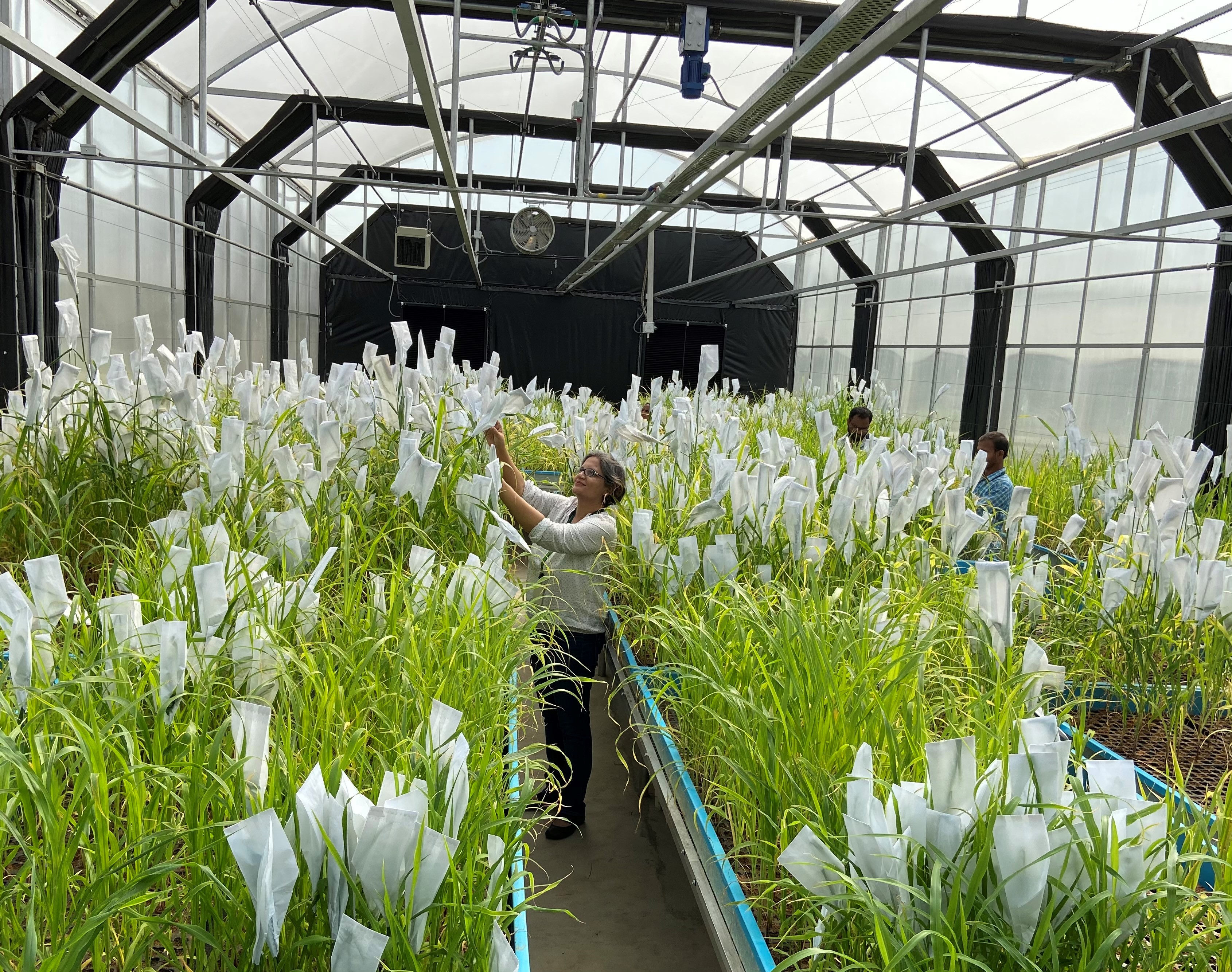
TENACITY -- Pooja Bhatnagar-Mathur, Theme Leader - Cell, Molecular Biology & Genetic Engineering, Genetic Gains Program, International Crops Research Institute for the Semi-Arid Tropics (ICRISAT)
As a plant molecular biologist, I am a firm believer that to achieve something we’ve never had, we need to do something that’s never been done. And that requires tenacity! I draw on this as I strive to integrate aspects of fundamental biology, tissue culture, functional genomics, forward and reverse genetic approaches and new breeding techniques (NBTs) to improve agriculture crop products. In 2017, my team at ICRISAT started a quest to speed the pace of biotech and gene edited trait development pipelines. On a lab visit, a colleague (EiB’s now Deputy Director Jan Debaene) proposed we support breeding programs for rapid generation advancement. This task faced scaling issues and skepticism. However, tapping into my reserves of tenacity, I developed recipes for breeding acceleration based on our previous learnings. This paid off and we started to optimize crop specific recipes to achieve a faster generation turnover of crops such as chickpea, pearl millet, groundnut and sorghum with 40% reduced breeding cycle time with potential to contribute to an increased genetic gains. Now ICRISAT and partners have established a state-of-the-art RapidGen facility where pilots are being implemented for several crops to develop varieties at greatly reduced time and costs. Tenaciousness laid the foundation for accelerated breeding pipelines of some of the most important food and nutrition security crops of Asia and Africa. And I’m hopeful that CGIAR and NARS programs will be just as tenacious in mainstreaming these and other cutting edge innovations to benefit farmers and consumers the world over.
*****
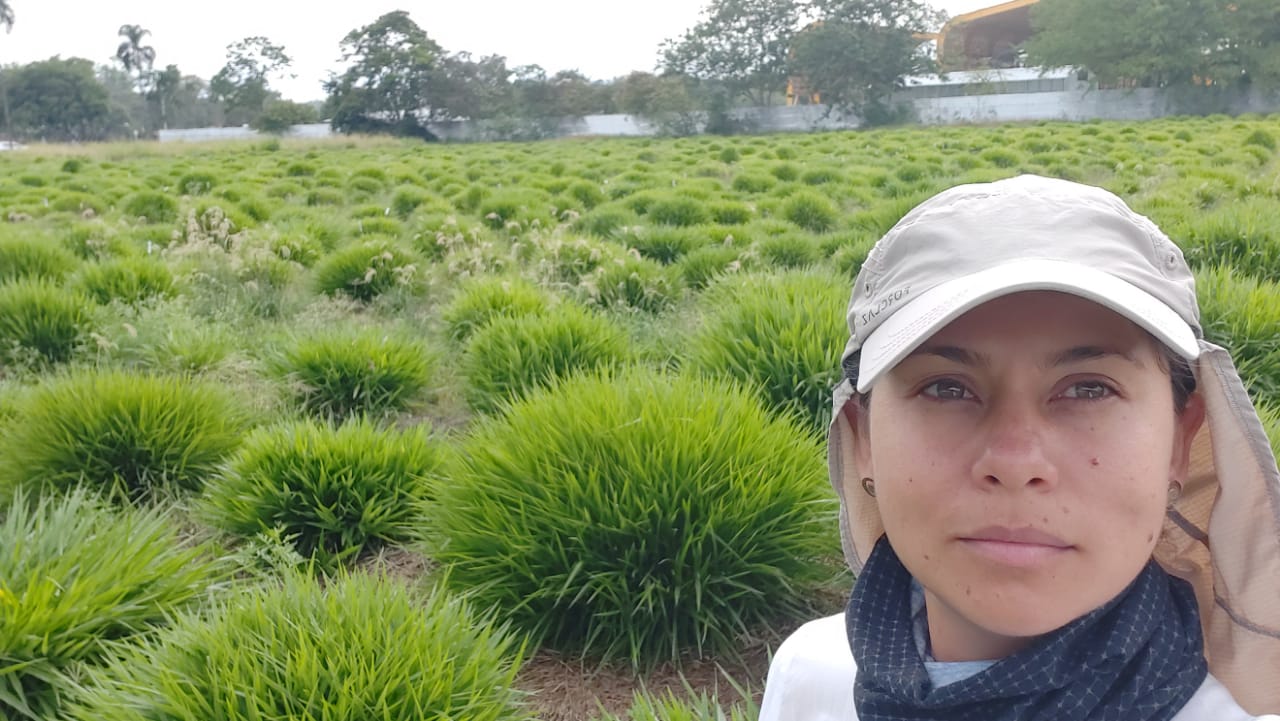
TIME -- Valheria Castiblanco, Forage breeder, Alliance of Bioversity International and CIAT
Time is a major player for women in breeding, both at work and at home. Time is the factor with the strongest impact for genetic gain in the breeders’ equation. Likewise, proper balance between personal-life time and work time is the key to guaranteeing success in a breeder’s life.
*****
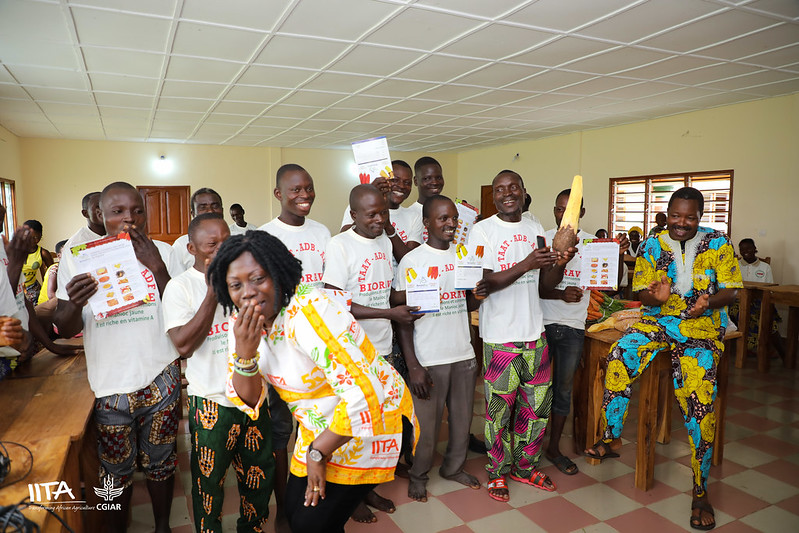
RESILIENCE -- Elizabeth Parkes, Cassava Breeder, International Institute of Tropical Agriculture (IITA) / HarvestPlus
My journey to become a scientist that breeds new cassava varieties spans over 20 years and it requires passion, tenacity, and resilience. There were times the journey looked gloomy and felt long and lonely as I tried to understand the genetics of a neglected crop with great potential to feed over 600 million people in Sub-Saharan Africa. Focusing on biofortified cassava and gender responsiveness in breeding in the past nine years made it exciting. The highlight has been motivating and mentoring other breeders, both male and female. We share the goal of providing nutritious food for the vulnerable – especially women and children – generating wealth, and helping transform African agriculture. A colleague, Ruth Prempeh of the CSIR-Crops Research Institute Kumasi, shows this resilience. She had three of her children while finishing her PhD. She followed me while pregnant to a conference in Mali; traveled to Wageningen for a workshop with her second pregnancy; and payed a study visit to IITA’s cassava team during her third. Now, CGIAR is encouraging others through the newly launched Women in Research and Science (WIRES), which will promote the work and leverage the resilience of our talented women scientists.
*****
Can you find the words? Try below, or play the online version here.
And please have a reflective International Day of Women and Girls in Science!
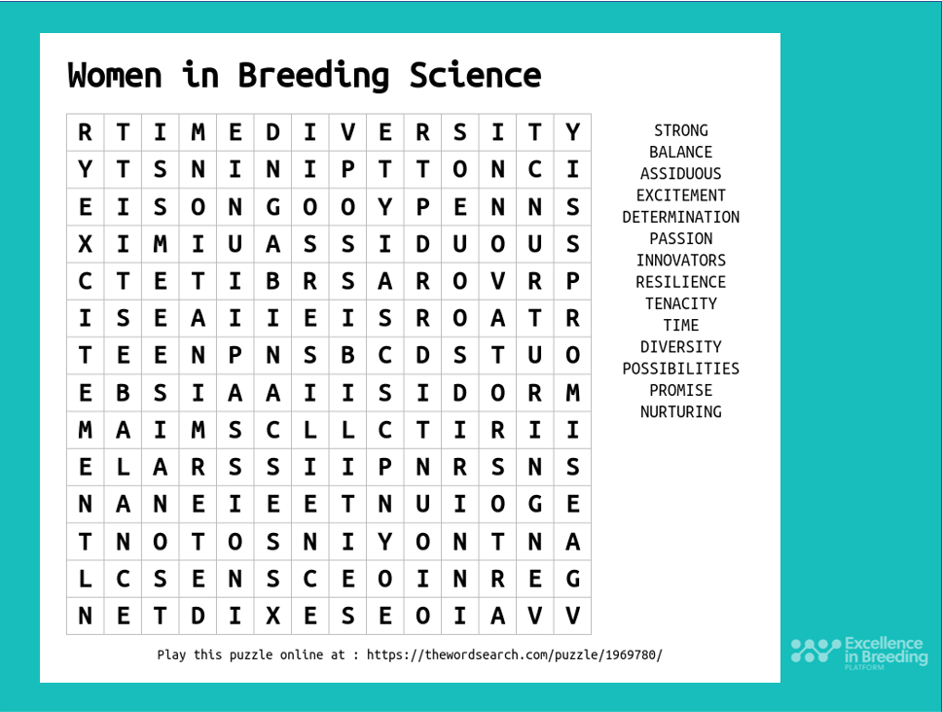
*****
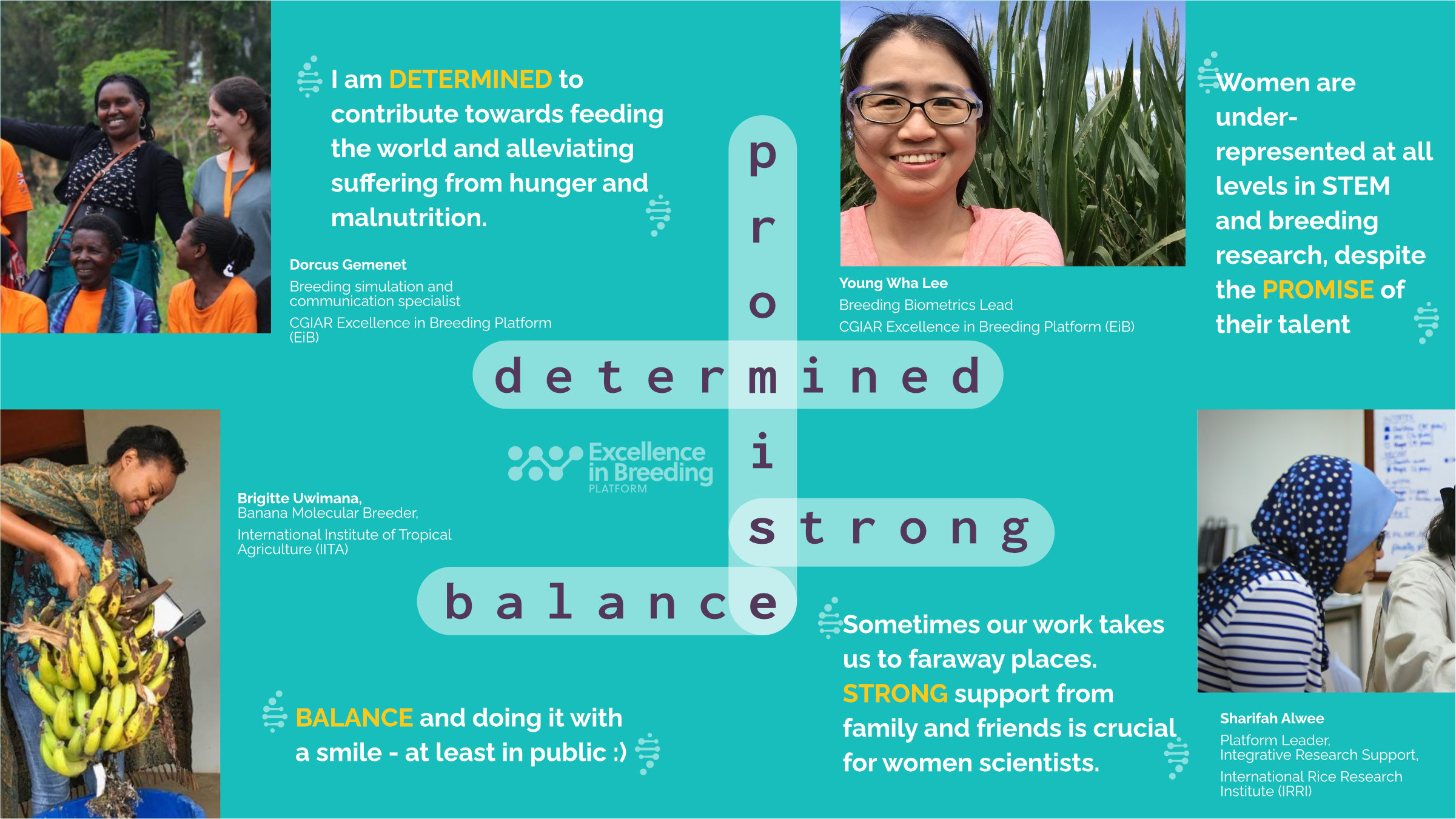
*****
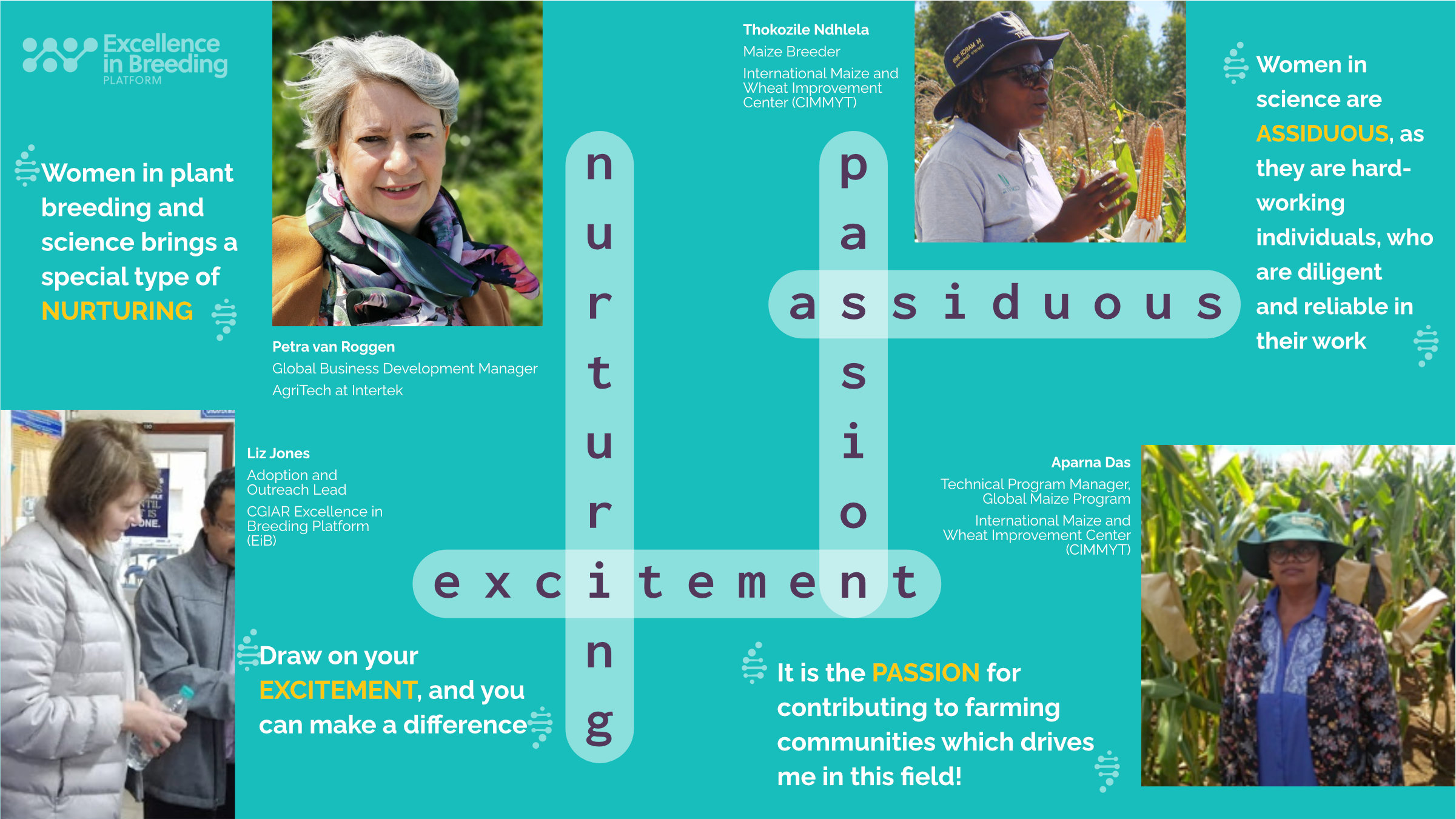
*****
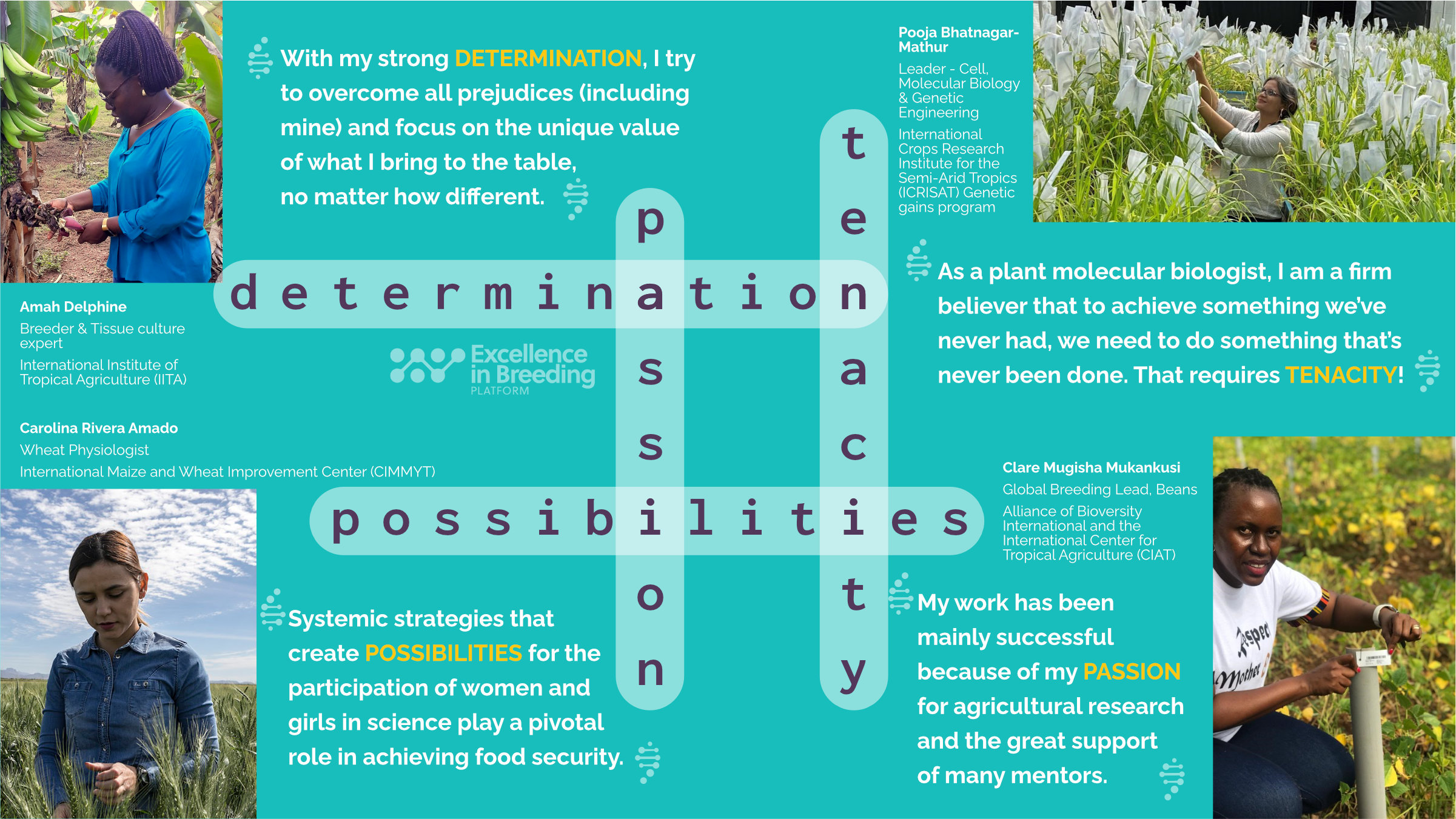
*****
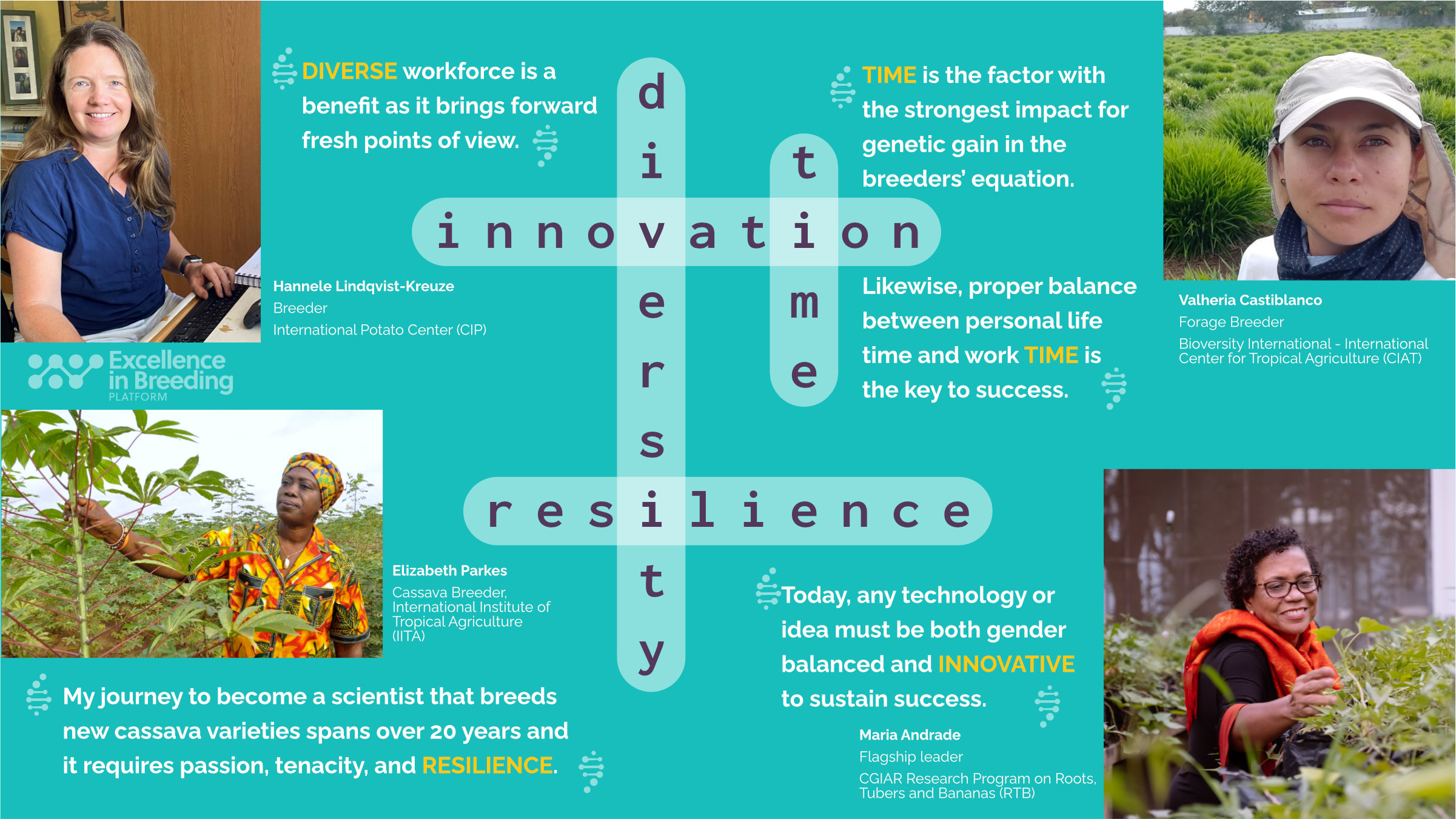
----------
For more CGIAR Gender work, visit: https://gender.cgiar.org/
This blog reflects the information and views of the authors only. EiB and partners are supported by CGIAR Trust Fund Contributors and the Crops to End Hunger initiative, via the Bill and Melinda Gates Foundation, GIZ, BMZ, USAID, UK Aid, ACIAR and other partners.
This blog and the corresponding social media campaign were developed by EiB Communications Lead Adam Hunt.
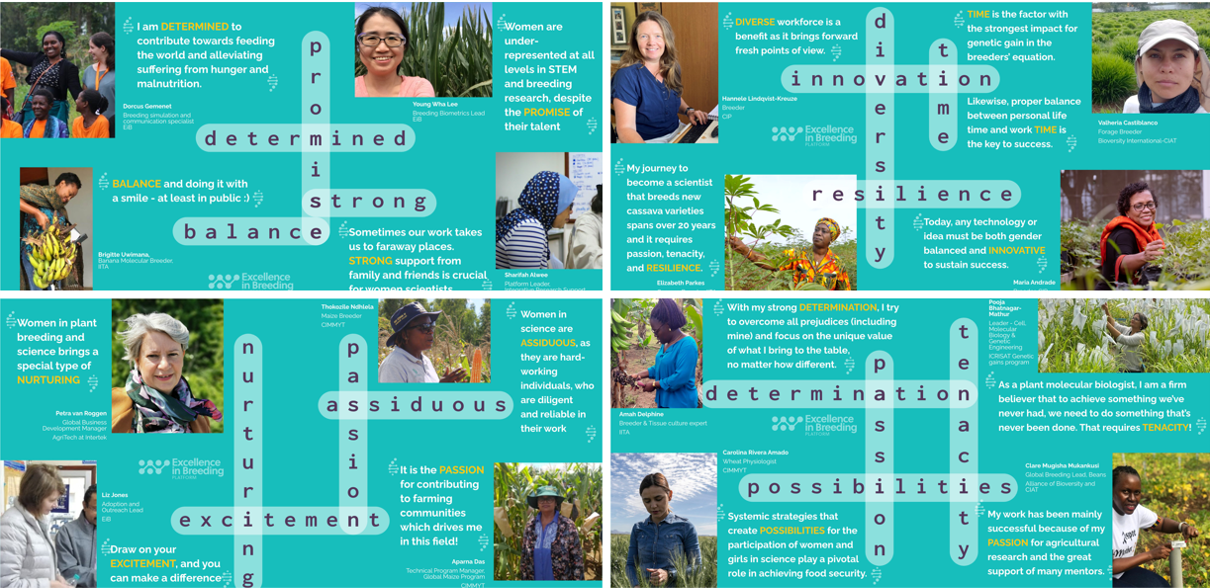
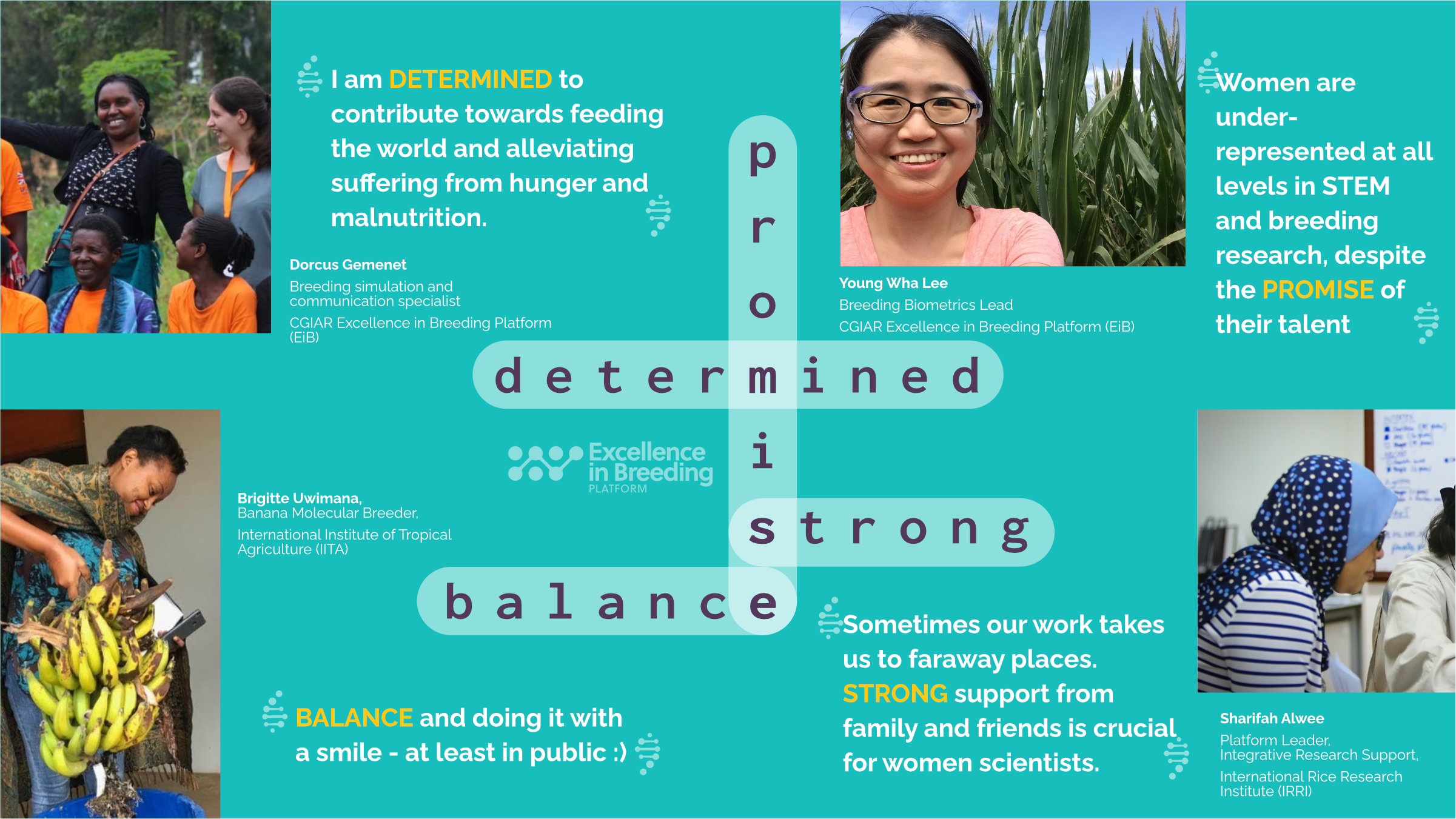


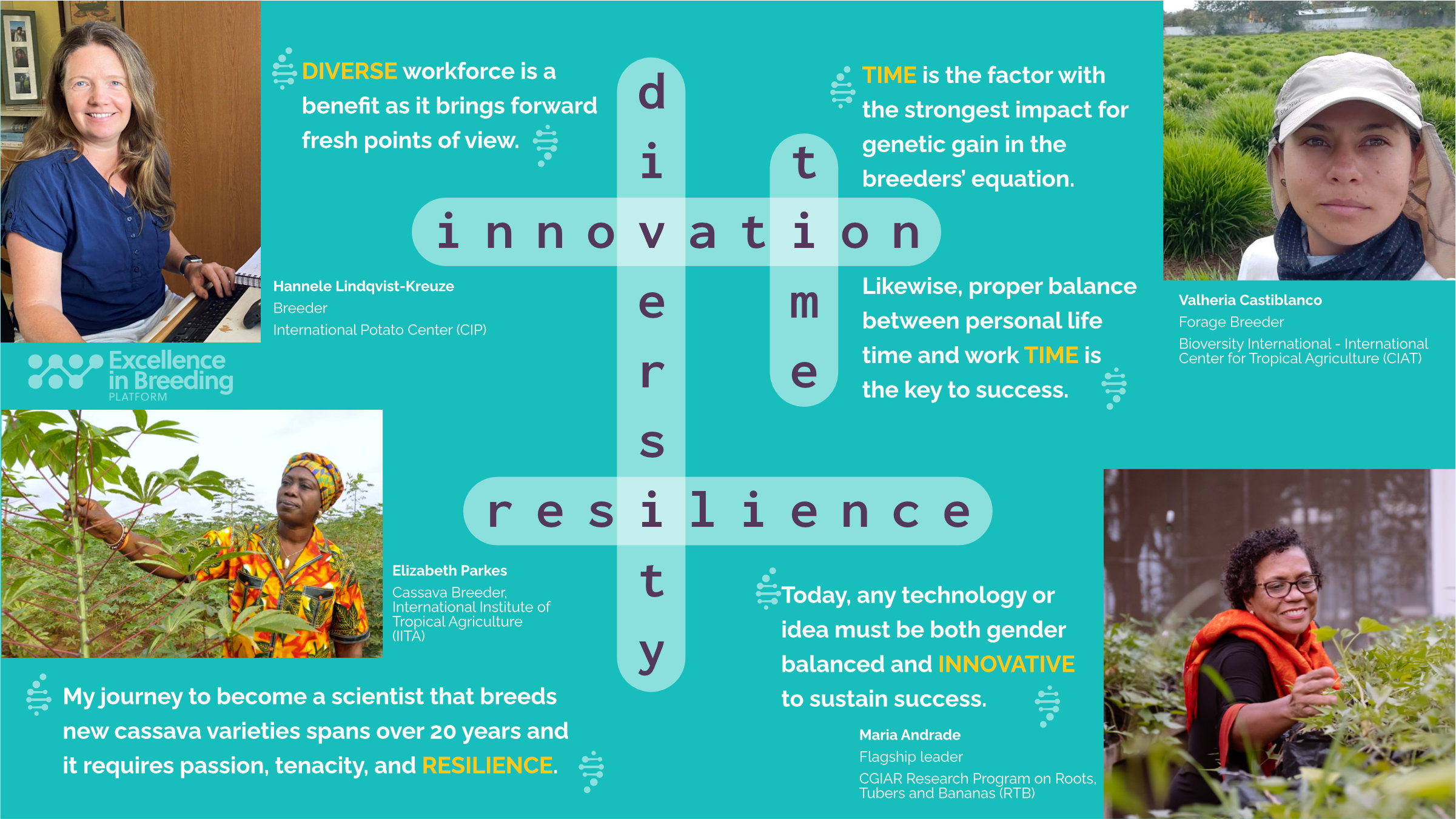
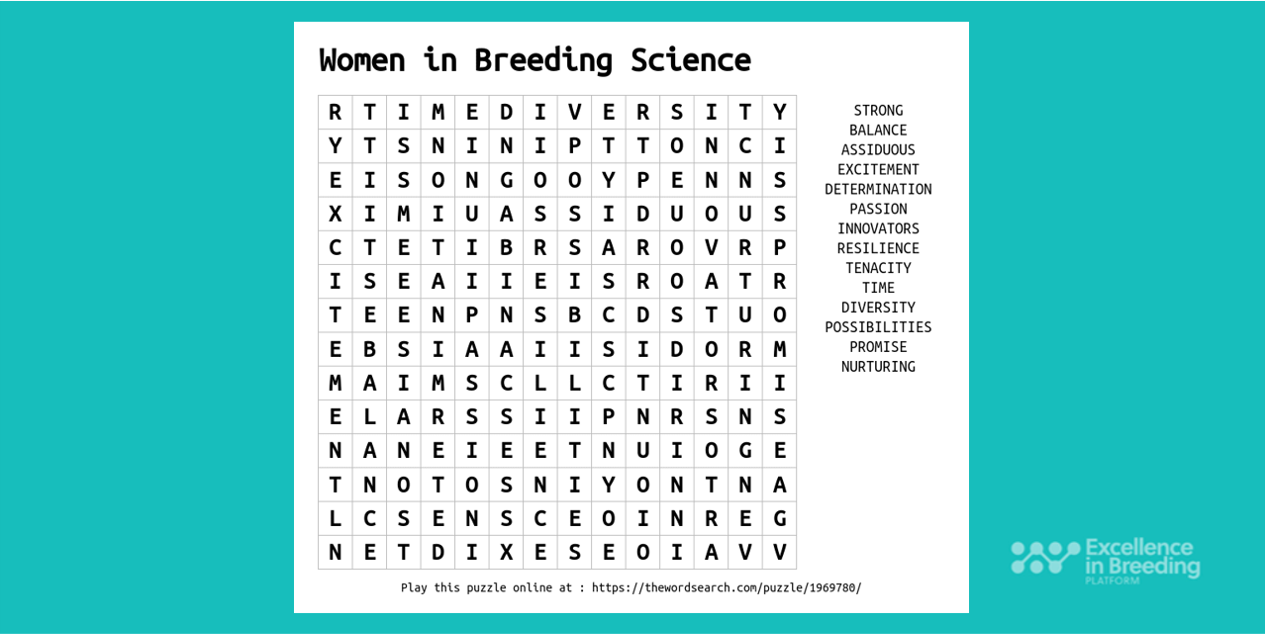
Comments
A crop that could easily